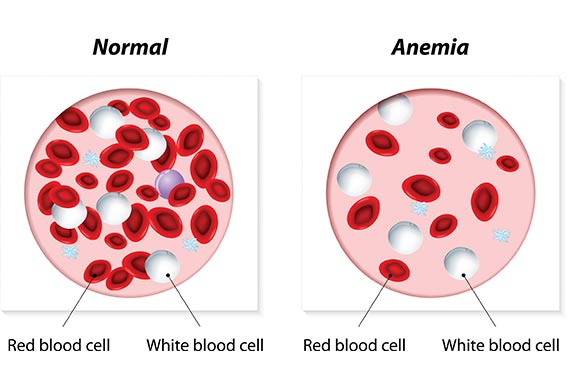The Importance of Maintaining Healthy Iron Levels
A study by the University of Edinburgh using genetic data from more than a million people found that maintaining healthy iron levels could be the key to slowing down signs of aging and an extended lifespan. Researchers claim the findings could speed up developing drugs that extend healthy life and reduce age-related diseases. According to Dr. Paul Timmers from the Usher Institute, ‘the findings on iron metabolism might explain why iron-rich red meat is linked to age-related conditions like heart disease.”In fact, It is important to note that diet impacts blood iron.
Abnormally low or high levels of iron can cause liver disease, Parkinson’s disease, and a decline of the body’s ability to fight infections. Therefore, understanding the basics of a healthy diet and taking the required amount of iron is essential. Below are other reasons why it is important to maintain the correct iron levels.
Prevents and Treats Iron-deficiency

Consuming enough iron is essential for your body to function correctly and prevent iron deficiency. Iron deficiency occurs due to inadequate dietary iron, increased need for the mineral, poor absorption, and blood loss. It affects people of all backgrounds including athletes, seniors, vegans, young women, and pregnant women.
For example, athletes have an increased need for iron because intense exercises inhibit absorption. Pregnancy and loss of blood during menstruation also increase the demand for iron, while poor diet among seniors leads to iron deficiency. Meanwhile, vegans are also prone to iron deficiency because they consume plant-based (non-heme iron) diets. By increasing the absorption of iron from foods rich in vitamin C, vitamin A and Beta-Carotene, fish, meat, and poultry, you can prevent and treat iron-deficiency.
Treats Anemia

Although people with iron deficiency are more likely to develop anemia, chronic conditions like heart disease, cancer, and liver problems also increase the risk. Anemia often results when the level of red blood cells or hemoglobin is deficient in the body. Hemoglobin transports oxygen in the brain, cells, and other organs, so a lack of it leaves you tired, short of breath, and pale.
Since the primary function of iron in the body is to form hemoglobin, increasing the amount of iron in your diet is essential. Doctors also prioritize treating anemia with iron supplements because they boost iron levels in the blood. Moreover, iron supplements have minimal side effects if you follow the right dosage. Taking more iron can cause an overload, resulting in severe health conditions like liver damage.
Enhances Athletic Performance

Athletes are always keen to incorporate and monitor the intake of adequate proteins, carbohydrates, and fats, but overlook the importance of iron. A 2019 study by the University of Australia found that 35% of females and 11% of male athletes are iron deficient. Athletes who lack enough iron have reduced endurance performance. When iron levels are low, the body lacks enough oxygen. As a result, athletes experience chronic fatigue, poor concentration, and irritability because a drop in iron levels has a negative effect on brain performance.
Low levels of iron also cause the loss of muscle elasticity and tone, resulting in inflammation. Adding iron-rich foods in your diet and taking iron supplements helps reduce pain and boost energy metabolism. However, health experts recommend monitoring the intake of iron to reduce health risks. High levels of iron can cause poor cardiovascular health, increased inflammation, and raised cholesterol levels.
Iron is essential for boosting the immune system because it promotes the production of red blood cells. Adequate oxygen in the blood speeds up the healing of damaged cells, organs, and tissues. Thus, iron supplementation is necessary, especially for those people who experience frequent bruising.






